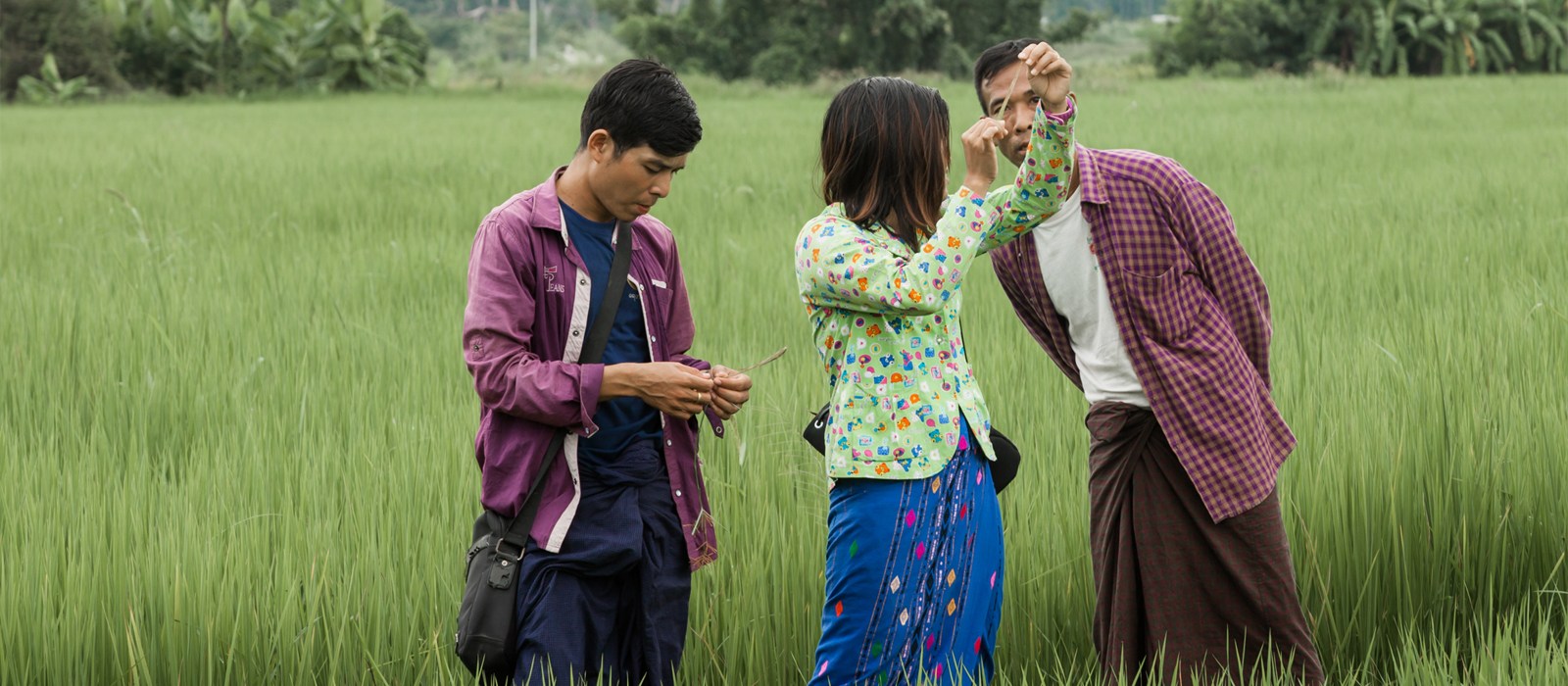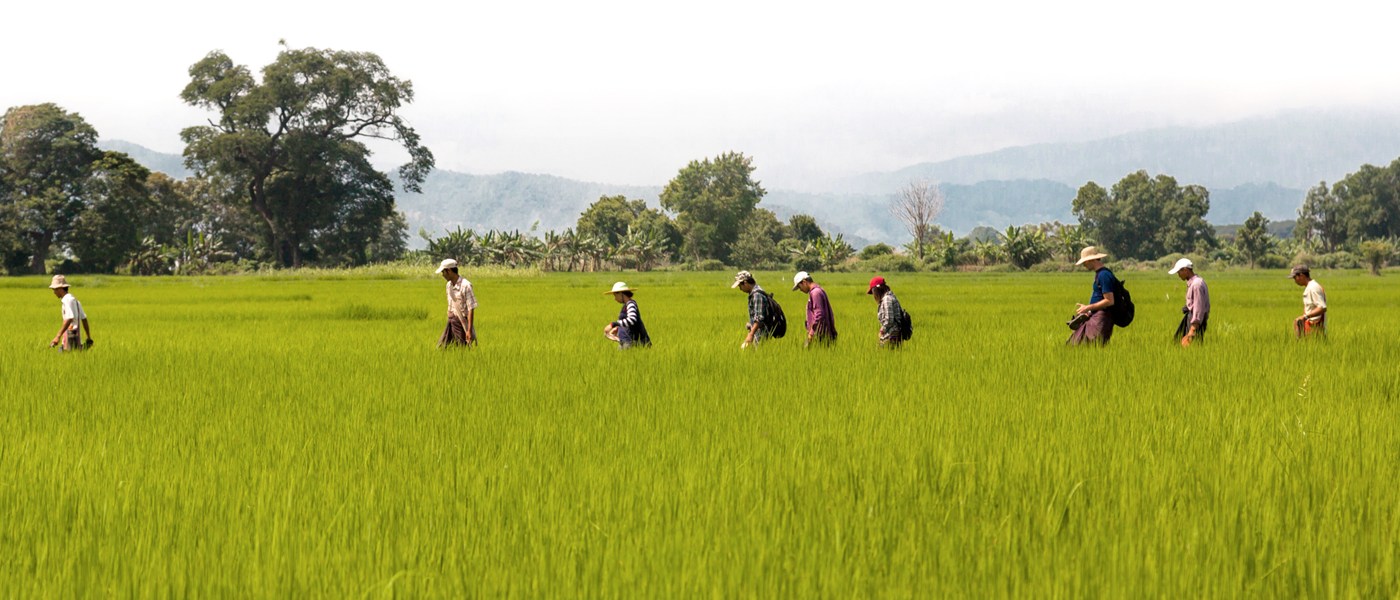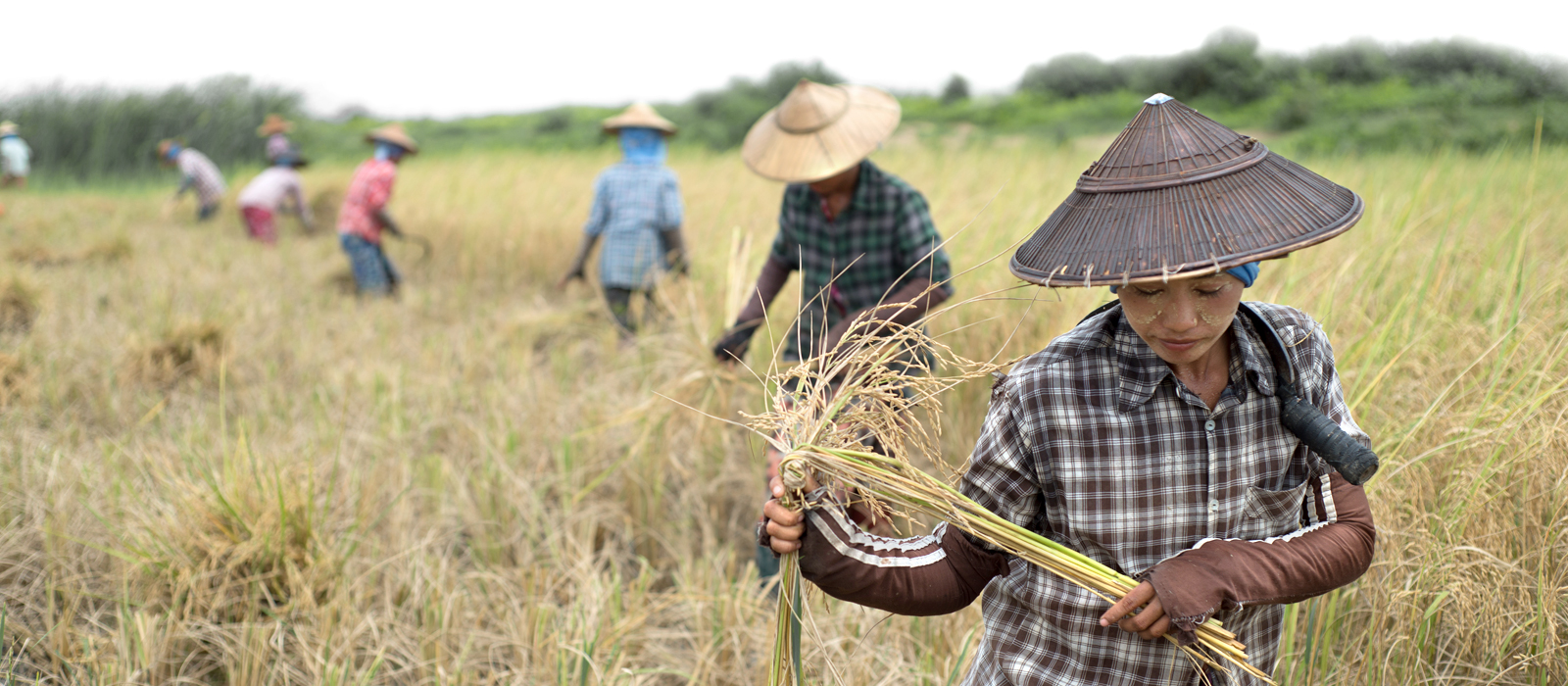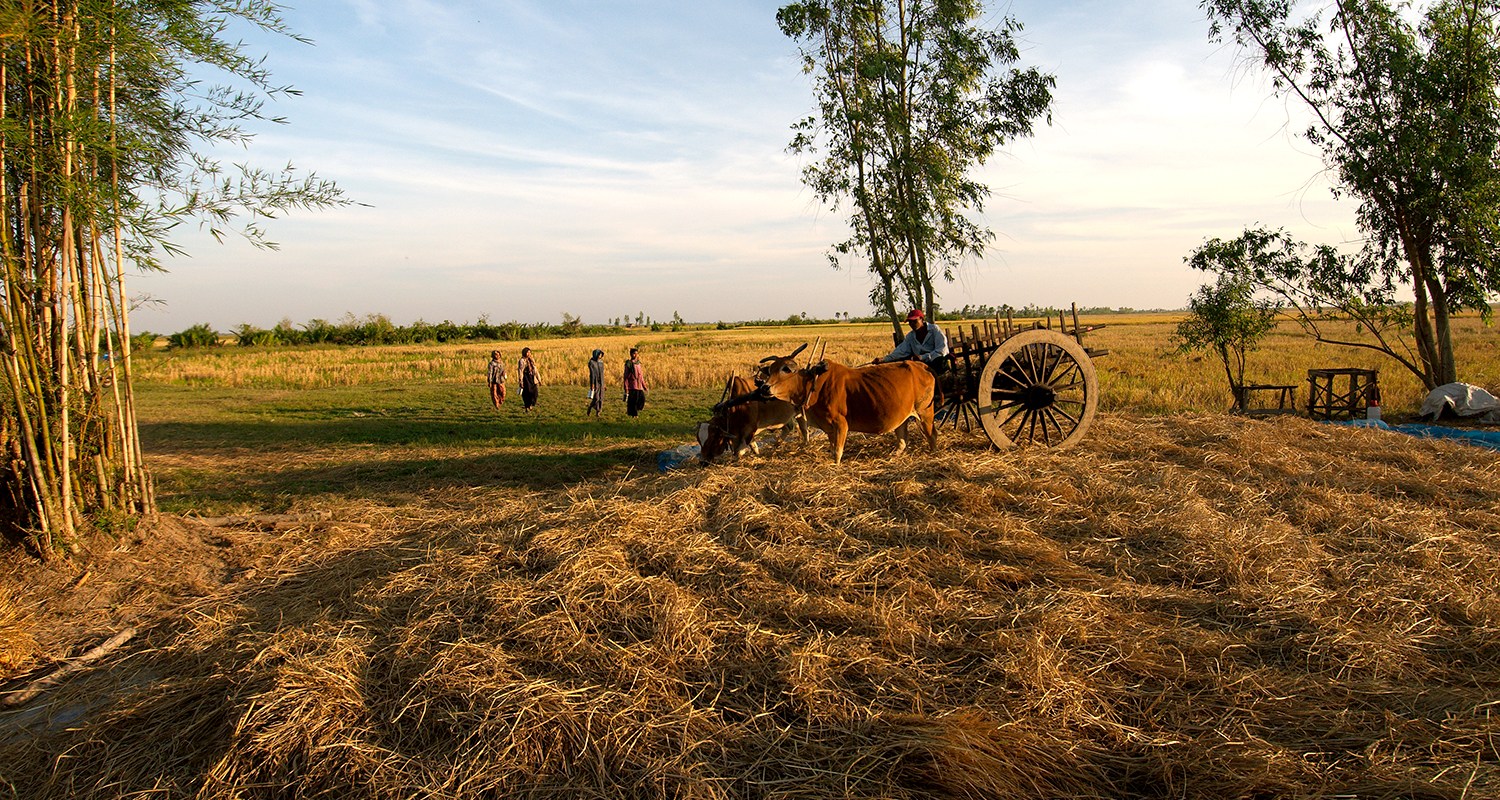This is us
The power of being proximate
Our founders, Jim Taylor and Debbie Aung Din, launched Proximity Designs in 2004 with the commitment to create a social business for Myanmar’s underserved rural families. They saw farmers’ profound needs were neglected by the private, government and aid sectors. After 20 years working to make change happen in tough environments around the world, they put to use a powerful idea they learned at the start of their careers.
It was in the Mississippi Delta where they worked with social entrepreneur and civil rights leader, John Perkins, that they learned an important lesson: deep knowledge and understanding comes from living among those you aim to serve. Their problems become yours.
With these values, they moved to Myanmar and entered the rural market with 13 team members and two treadle pump models, working alongside rural farmers.
Hence, our name Proximity.
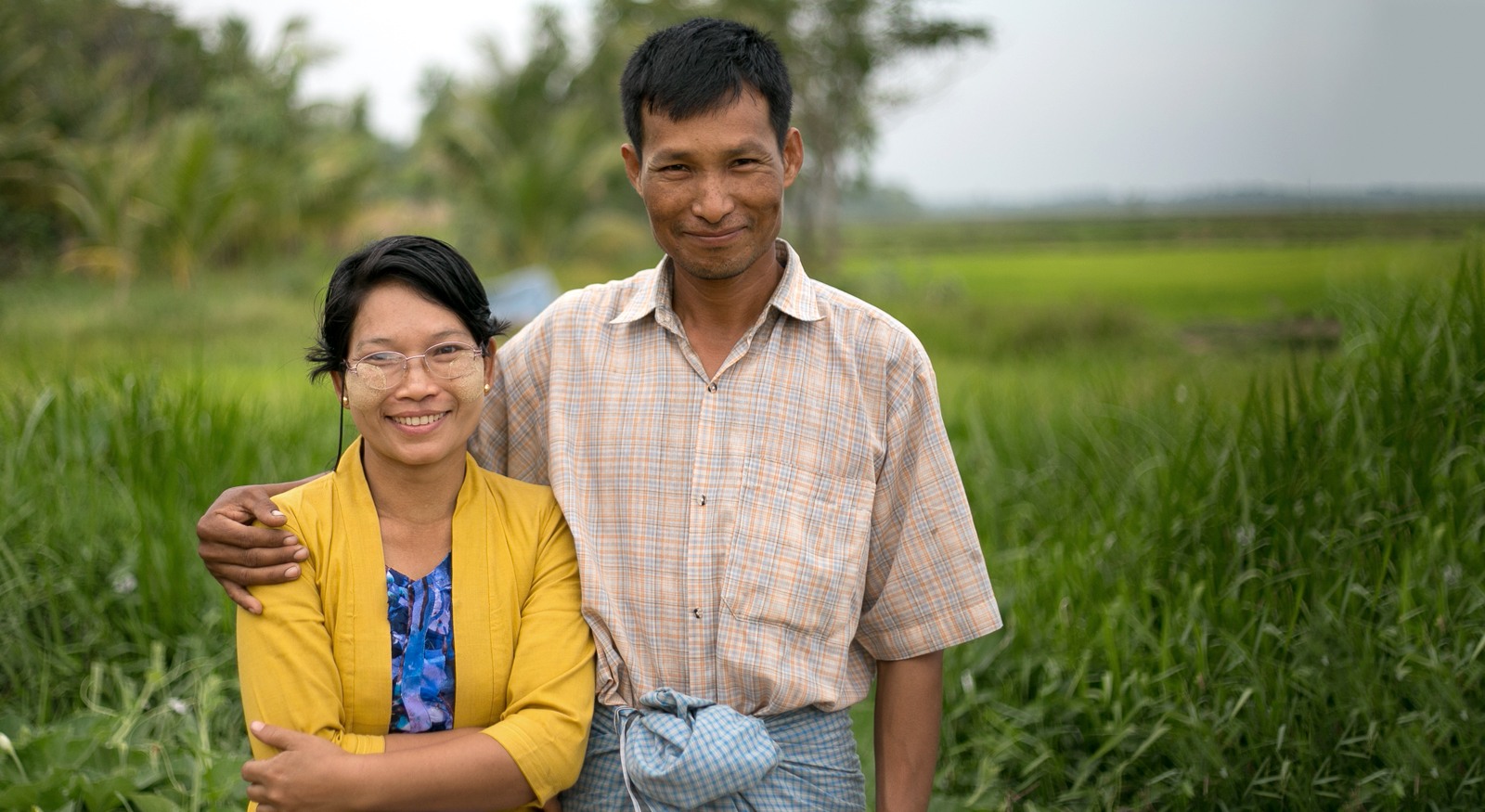
The mission
35 million rural people with a lot to gain
In a country where 70 percent of the population depends on agriculture, improvements in farming technology, products and practices – and the credit to access them – are vital to improving living conditions.
That’s where we come in. Our mission is to increase incomes across rural Myanmar. Over the past 20 years, our customers have seen an average annual income increase up to 30 percent by using our products and services, which helps put food on the table, keep kids in school and set families up for a brighter, easier future.
Agility through moments of change
While our mission has always stayed the same, over the years we’ve adapted quickly, responding to changing needs. This couldn’t have been more true in the days immediately after Cyclone Nargis hit the Ayeyarwady Delta in 2008. That year we shifted gears, employing our distribution network to eventually deliver over $17 million in emergency aid to 1.2 million farmers.
As we grow, we continuously aim to deliver the most impactful products and services for our customers. Now we have moved beyond treadle pumps to scale a wider platform of agricultural services, coupled with a focus on climate adaptation and mitigation, to help Myanmar’s farmers achieve their goals.
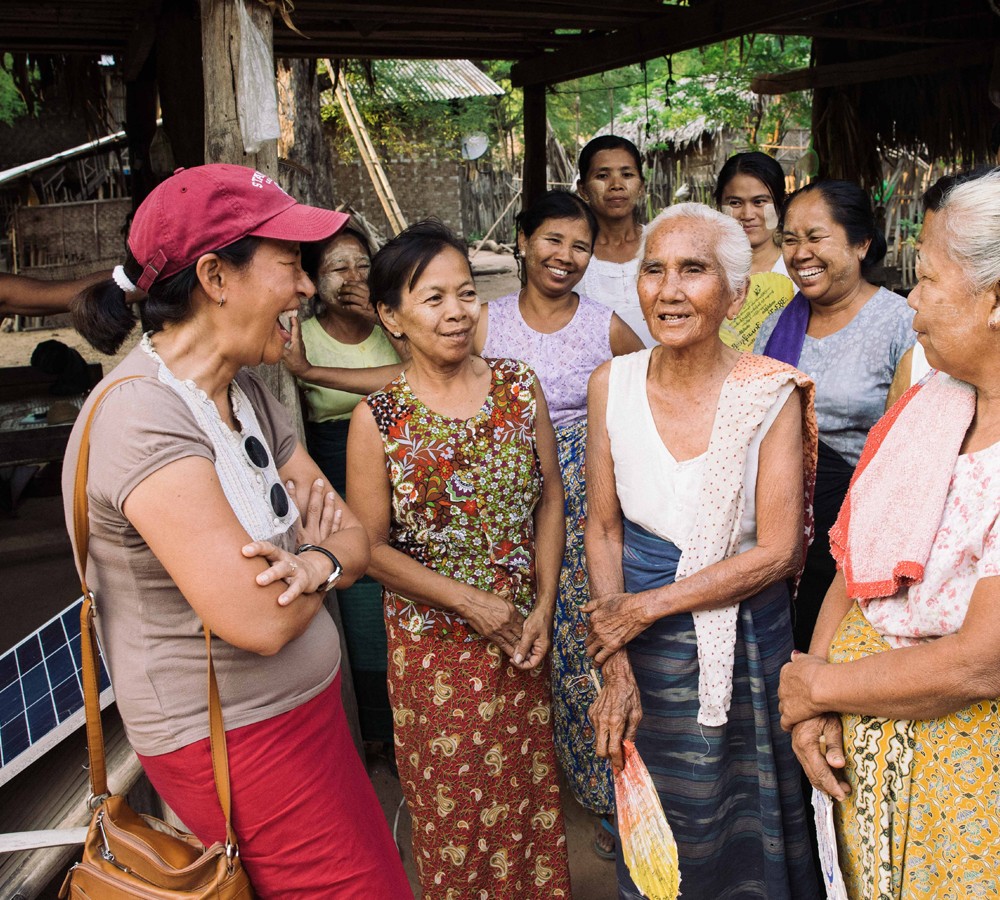
Social and enterprising
Being a social business, our aim is to have deep sustainable impact at a large scale. Our revenue model is 20% earned revenue from the farm technology and agronomy products we sell and 80% philanthropic capital. Our grants allow us to invest in product design, measure impact and reach thousands of rural villages.
Human-Centered Design
Designing products for the rural poor play_circle_filledThe Delta, the Dry Zone and beyond
The scale and scope of our work
Our early years of operation allowed us to create a nationwide network of field sales teams, private retailers and hundreds of independent village agents needed to deliver products and services to small farm customers across Myanmar. Today the scope of our network reaches nearly 75% percent of the farming population. We have customers in the Ayeyarwady Delta, Lower Myanmar, the Dry Zone and the Shan hills.
From Myanmar to the world
Why our focus starts here
For decades, Myanmar was one of the world’s poorest and most isolated countries. We were drawn to work here because we saw the huge potential for how well-designed products and services could have a meaningful impact on the lives of millions of enterprising small-plot farmers.
Sometimes folks ask us if we have plans to expand beyond Myanmar. We strongly believe it takes deep knowledge of a place and the lives of its people to have a chance at solving the complex problems of poverty and economic development. Our intention is to go deep into this large market. At the same time, we want to share our innovations freely so they can be replicated in other countries. We are committed to joining hands with like-minded organizations similar to our recent work with the Climate Action for Small Holders Coalition.
Over the past decade, the pace of change in Myanmar has been dizzying. We’ve had to be especially agile to adjust to the changes our customers are experiencing. Myanmar is far behind its neighbors and millions of small farmers are still neglected and poorly served. It’s now a key moment in the country’s long history. It will take years of sustained effort, wise leadership and efficient use of investments to rebuild the nation and lift millions of rural families out of poverty.
That’s why we’re here.
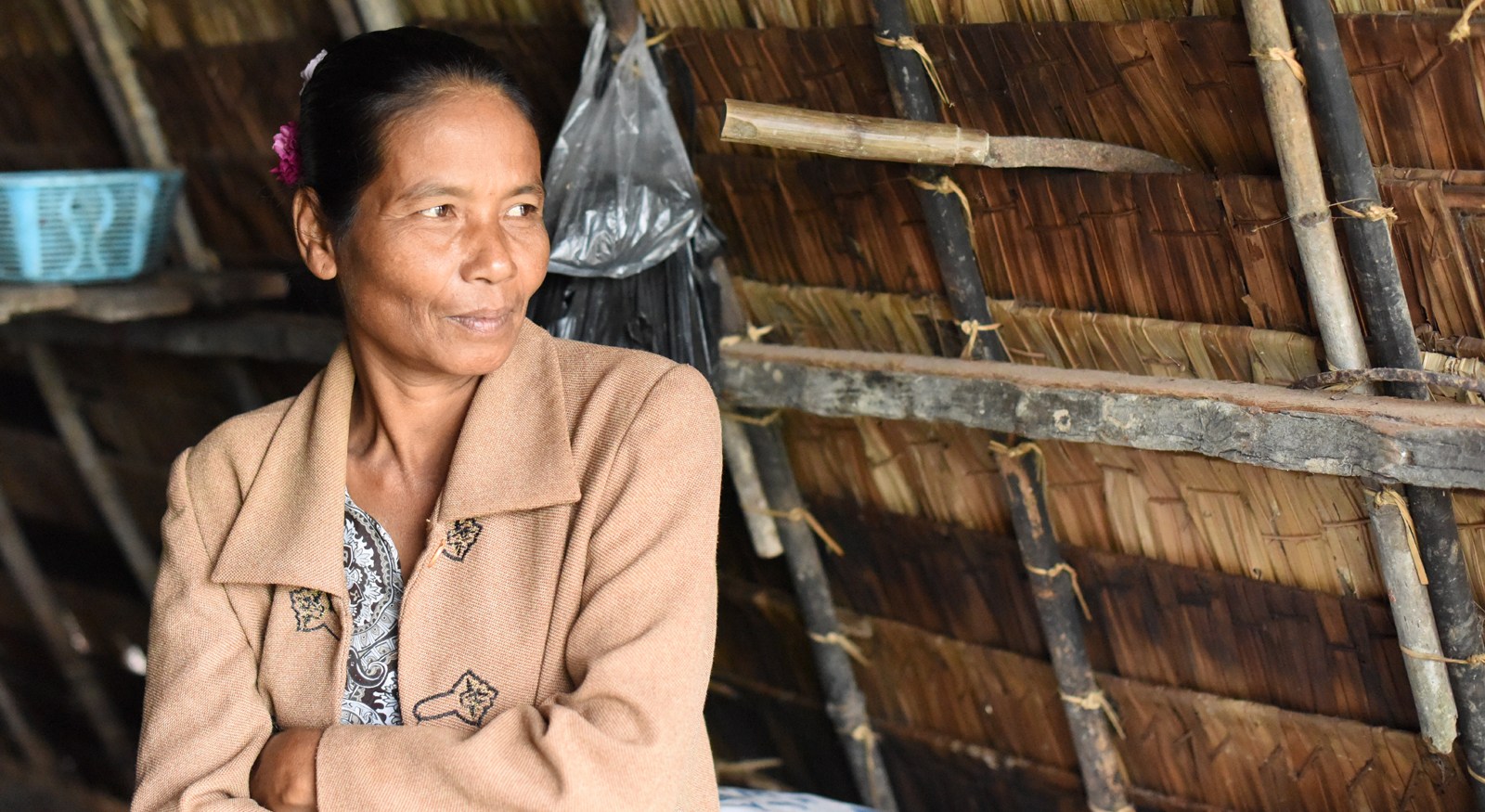
Lasting impact at scale
Farming households choose to purchase our products and services because they see a quick return on their investment through higher yields, reducing crop losses and optimizing inputs. Our in-house social impact team has been interviewing hundreds of customers every year for over a decade. They measure farmer income gains that can be attributed to the use of our products and services.
Take a look at the numbers below for a snapshot of the scope and scale of our impact:
| Scale | 250,000+ farm customers reached each year on a base of over 1.3 million farm families |
| Reach | 17,000 villages, 250 townships, 75% of the farming population |
| Median | Net gain of 1,000 US ppp annually per farmer income |
| Efficiency | 12x (net income gain/cost to deliver) |
| Cumulative Impact | 1.6 billion US ppp in the past 20 years |
| Sustainability | 30% of budget from earned revenue |
Recognition
We are honored to be recipients of The Skoll Award for Social Entrepreneurship, The Curry Stone Design Prize, Schwab Foundation Social Entrepreneur of the Year and The Ashden Award for Energy and Agriculture. In 2019, Proximity was ranked among the world’s 50 Best Workplaces for Innovators by Fast Company.


